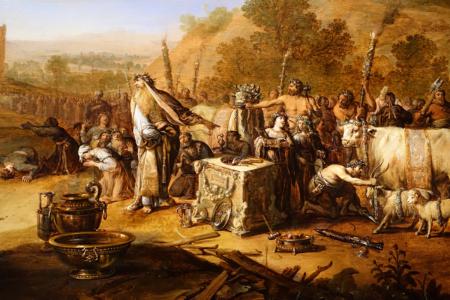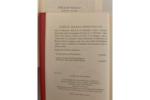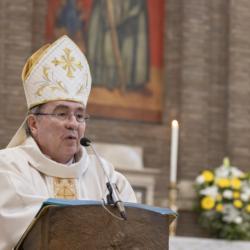Whitey Ford and me
I always felt a special connection with Whitey Ford, the winningest pitcher in Yankees history, who died Oct. 8, 2020 at the age of 91. I felt that way even though, more than anyone else, he was the embodiment of the Evil Empire. He grew up a die-hard Yankee fan in Queens, just a few miles from Yankee Stadium and he never played for any organization other than the Yankees. He was to become a teammate of his boyhood idol, Joe DiMaggio.
I think I felt the way I did because, as a kid, I remembered -- or, at least, thought I did -- watching on TV one Saturday afternoon when he made his major league debut at Fenway Park against the Red Sox. I also remembered -- or thought I did -- that he shut down the Sox with a baffling array of pitches that left me thinking, "Gee, this guy is pretty good."
After reading his obituary, I decided to look up the details of his pitching debut just to see if my memory could be trusted. Sure enough, on July 1, 1950, he made his first big league appearance at Fenway Park in relief of Tommy Byrne. It was even on a Saturday afternoon. I was feeling more than a little bit smug about my infallible memory until I checked his pitching line for that day. Rather than baffling the Sox, in just 4 2/3 innings, he gave up five runs on seven hits and six walks. So much for my impeccable powers of recall.
It's not that Whitey hurt the Yankees' chances that day. Byrne, the starter, had already been knocked around for eight runs before manager Casey Stengel felt safe in calling the 21-year-old kid into the game. Ford ended the day with an earned run average of 9.64, right in line with what Red Sox rookies had this year.
His mediocre performance that day proved to be the exception to the rule, as he then reeled off nine consecutive victories, finishing his abbreviated season at nine and one and lowering his ERA to 2.81. He finished second in Rookie of the Year voting to the Sox's Walt Dropo, who had his one and only monster year in '50.
Although Fenway Park fans had witnessed the first-ever pitching appearance of the guy who was then called Eddie Ford -- he hadn't yet been endowed with the moniker of Whitey -- they would see very little of him over the next decade. Stengel, a firm believer in the concept of platooning players, held him out of Fenway appearances, apparently fearing that right-hand batters would do to the lefty what they had done on that first Saturday afternoon. The result was that Ford missed four or five starts per year, which annually prevented him from reaching the 20-win mark, a source of great frustration. When Ralph Houk succeeded Stengel in 1961, he made Ford a part of the regular pitching rotation, and Ford responded by winning 25 games that year, tops in the league.
Although I had always admired him, it was not until half a century later that I became an out-and-out Whitey Ford fan. The occasion was a celebrity golf tournament held in Wellington, Florida, a community known much more for polo matches than for golf. Ted Williams was there even though his golf playing days were behind him due to a series of strokes. Also present were Dom DiMaggio and Ford.
I emceed the awards dinner that night. This was in the days that I was campaigning to get Dom elected to the Baseball Hall of Fame by the veterans committee -- we came within a vote of doing it one year. That night I made a pitch for Dom, who I felt, and still feel, was always overlooked because he played the same position as his brother, Joe, and because he played right next to Ted. Who wouldn't be overshadowed by stars of that magnitude?
I pointed out that Dom had more base hits in the years he played than anyone else in baseball; that he was one of only three players in American League history, and the only one to do so when the schedule was just 154 games a year, to have 500 putouts in a single season; that he still holds the American League record for most chances accepted per game over his career; that in his rookie year, despite playing in the field in only 95 games, he led the league in outfield assists, the only player to do so while playing in so few games; and that, in the years they both played, he had more putouts and more assists than his more famous brother Joe in every season but one. That last nugget was included for the benefit of Ford, seated in the audience, who had first idolized and then been a teammate of Joe.
Later that evening, after the dinner was over, I got on an elevator in the facility where it was held. The only other person on it was Whitey Ford, who I had never met before that night, and with whom I had only had the chance to exchange a few words during the dinner.
We both assumed the traditional elevator stance. You know, that's when two guys are on an elevator together and they stand shoulder to shoulder facing the elevator door. They never look at one another even when conversing. It makes no difference whether they're best friends or complete strangers -- that's the way it's done. It's not something we are taught, we must do it by instinct.
So there we were in our elevator stance, Whitey to the left and I to the right, staring at the sliding door, when Whitey said, out of the corner of his mouth and in his distinct New York accent, "You tell Dom for me that Joe couldn't hold his jock in the outfield."
I took in the information and considered the source whence it came, and I said out of the corner of my mouth, "Okay."
The elevator came to a stop at the next floor, the door slid open, and Whitey got off. It's the last I ever saw of him.
That's my story and I'm stickin' to it.
- Dick Flavin is a New York Times bestselling author; the Boston Red Sox "Poet Laureate" and The Pilot's recently minted Sports' columnist.



















